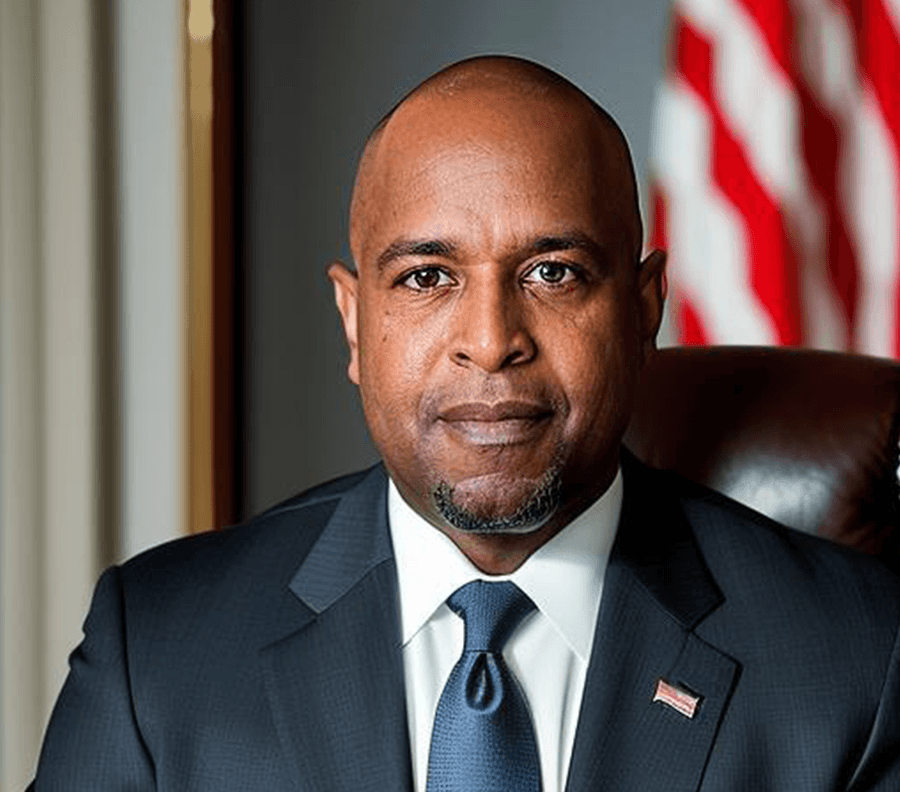Leading with 'Because': Change through Purpose-Driven Leadership
In the evolving leadership landscape, the introduction of the 'Because' philosophy marks a significant shift in how leaders articulate their vision...
4 min read
 Mick Hunt
:
Feb 3, 2024 6:21:35 PM
Mick Hunt
:
Feb 3, 2024 6:21:35 PM
In our world, questioning the established order is often met with resistance, yet it is the bedrock of progress and innovation. The simple word 'because' has the inherent power to challenge and reconstruct the status quo.
It represents a rationale, a justification, a reason to rethink what is considered normal or given. When individuals or organizations present their reasoning with 'because', they invite engagement in a conversation that has the potential to change perspectives and drive forward-thinking change.
Acknowledging this power, a number of disruptors have leveraged 'because' to articulate their unique visions and catalyze shifts in various industries. Whether it's a tech startup explaining why they're reimagining data storage 'because' the traditional ways are unsustainable or a social movement campaigning for policy reform 'because' the status quo is unjust, their success hinges on presenting a compelling reason for change. By understanding how 'because' has been pivotal in transformative case studies, we can glean insights into its application for strategic innovation.
The conjunction "because" does more than join phrases; it offers a fulcrum for persuasion and insight, becoming the linchpin in arguments that alter perceptions and drive change.
In my observations, "because" functions as a catalyst in transforming ideas into accepted practices. The case of SpaceX exemplifies this. Traditionally, space exploration was the domain of governmental agencies. SpaceX challenged this notion with a simple premise: because private enterprise can innovate more rapidly and cost-effectively than government programs, they can revolutionize space travel. This argument, backed by successful missions, has fundamentally altered the landscape of aerospace.
"Because" has a profound effect on decision-making processes. For instance, the rapid adoption of renewable energy sources in recent years often comes down to arguments framed with "because." Energy companies might argue that, because renewable sources are sustainable and becoming more cost-effective, there is a clear economic and environmental imperative to shift away from fossil fuels. This logic persuades stakeholders, influencing the redirection of investments and strategies in the energy sector.
Throughout history, the question 'Because' has often been the catalyst for seismic societal shifts and groundbreaking discoveries. Here I'll highlight how this simple word has empowered social movements and propelled innovation milestones.
In the 1960s, Dr. Martin Luther King Jr. often articulated a 'Because' that shook the foundations of the status quo. He famously declared, "I have a dream," giving a reason for the civil rights movement that led to significant legislative changes, like the Civil Rights Act of 1964.
Rosa Parks' defiance on a Montgomery bus in 1955 serves as another instance. Her implicit 'Because' questioned segregation, igniting a bus boycott and contributing to the momentum of the movement.
In the realm of technology, daring to ask 'Because' led to the Wright brothers' first flight in 1903. They pursued powered flight because they believed human flight was possible, altering transportation forever.
Steve Jobs insisted 'Because the personal computer should be accessible to everyone,' driving the development of the Apple I in 1976. His pursuit disrupted the computer industry and paved the way for personal computing.
The power of 'Because' as a disruptive force is evident across various industries and sectors. The case studies below illustrate how questioning the status quo has led to significant advances and changes.
The 'Because' approach transforms traditional strategies by introducing compelling reasons behind every decision, driving purpose-driven change.
In corporate leadership, I use 'Because' to justify strategic shifts and foster buy-in at all levels.
Example: At Apple, leaders like Steve Jobs famously said, "We're doing this because it's what's right," when shifting focus to more sustainable manufacturing practices.
This approach secured both employee and consumer support for the change.
For marketing campaigns, 'Because' becomes a narrative tool that connects products with consumer values. Example: Nike's "Just Do It" campaigns are effective because they tap into the individual desire for self-improvement and social change. Here's how I structure a marketing campaign:
Conclusion: Embracing 'Because' for Future Innovations and Social Progress
As we look towards the future, the strategic power of 'Because' remains an untapped reservoir of potential. In a world where traditional paradigms are constantly being challenged, it becomes imperative for leaders, innovators, and change-makers to harness this power effectively. 'Because' is not just a word; it's a mindset that encourages questioning, fosters innovation, and inspires action.
For future innovators and social leaders, the message is clear: articulate your purpose with 'Because'. Whether you're aiming to revolutionize an industry, change a social norm, or pivot an existing strategy, starting your argument with 'Because' provides a clear and compelling rationale that can rally support, challenge conventions, and facilitate change.
Key Actions for Implementing 'Because':
As we move forward, the scope of 'Because' in driving societal and technological advancements will only grow. It will be the spark that ignites innovation, the force that propels social movements, and the cornerstone of persuasive communication. By embracing 'Because', we are not just challenging the status quo; we are reconstructing it to build a more innovative, just, and sustainable future.
In conclusion, the strategic power of 'Because' lies in its simplicity and depth. It encourages us to delve deeper into our purposes, question established norms, and articulate compelling reasons for change. By embracing this approach, we open ourselves to endless possibilities of innovation, growth, and positive social impact. Let us carry this powerful tool into our future endeavors, knowing that with 'Because', we have the key to unlock the doors of change and progress.

In the evolving leadership landscape, the introduction of the 'Because' philosophy marks a significant shift in how leaders articulate their vision...

In the dynamic world of sales, the tides are turning towards a new horizon where the art of connection takes precedence over traditional conversion...

In the dynamic world of sales, the line that separates the ordinary from the extraordinary is not drawn by skill alone but by the depth of one's...